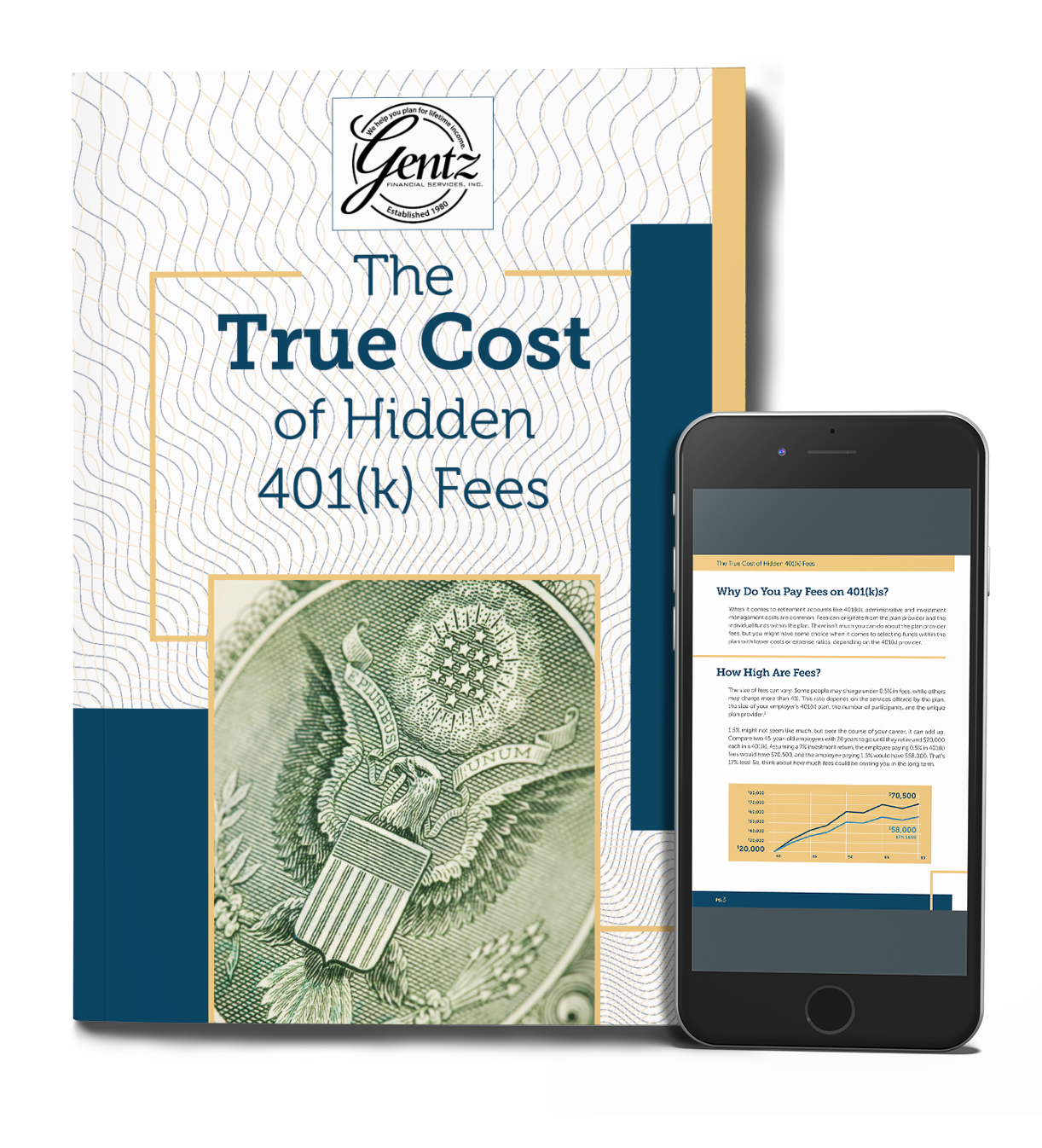Questions about your retirement plan?
Approaching retirement raises important questions: When is the right time for me to retire? Will my income be enough? Regardless of where you are in your retirement journey, it’s crucial to understand the options available to you at all stages – and that’s why Gentz Financial is here to help!
Social Security is a crucial asset for many Americans in retirement. Surprisingly, more than 90% of recipients fail to maximize their benefits. It is vital to plan ahead and understand that the choices made today can greatly affect the total amount received throughout one’s lifetime.
When it comes to Social Security:
- How are social security benefits calculated?
- What is your full retirement age?
- How does inflation impact Social Security?
- Can you work in retirement?
- Are you Married? Divorced? Widowed? Remarried?
At Gentz, our team will help you understand the system, coordinate spousal and survivor benefits, minimize taxes, and maximize your personal benefits.
Do You Know How Much You’re Paying in Fees?
Are you aware of the fees associated with your 401(k) and the fact that you’re being charged fees at all? While it’s not always the case that cheaper is better, it’s important to grasp how fees can impact your retirement portfolios and investment circumstances.
As you reach the age of 59 ½, you may have the chance to withdraw and reinvest funds into an account that offers a more preferable fee structure or a lower rate.
Your employer plan is typically your most valuable retirement asset, and how you handle it could have major financial implications now and in retirement.
When it comes to your 401(K):
- Should you leave it where it is?
- Move it?
- Take the cash?
- Roll it over?
Properly managing an investment portfolio involves aligning it with your risk tolerance, time horizon, and goals. Learning the fundamental principles and strategies can aid in steering clear of common investor pitfalls.
Given the significant impact of healthcare costs on retirement planning, you may want to consider working them into your financial strategy. Ignoring these expenses may have detrimental effects on your savings.
When it comes to Medicare:
- How much will healthcare cost you?
- How much will medicare cost you?
- How does Medicare factor into early retirement?
- How should you plan for long-term care?
Milestone Birthdays
Important Dates In 2024
January 1st: First day to contribute to a traditional and Roth IRAs and Simplified Employee Pension Plans (SEP) for the new year.
January 1st: Medicare Advantage Open Enrollment Period and Medicare General Enrollment Period begins.
January 15th: The current year’s marketplace health insurance open enrollment ends.
January 15th: Due date for quarterly estimated taxes for the fourth quarter of the previous year.
March 31st: End of Medicare Part A and Part B General Enrollment Period.
March 31st: Last day to submit claims for eligible medical expenses from the previous year for many flexible spending account (FSA) plans with a use-it-or-lose-it rollover rule.
April 1st: Last day to take first IRA required minimum distribution (RMD) from traditional retirement accounts without penalty.
April 15th: The last day to contribute to a traditional or Roth IRA for the previous year.
April 15th: The last day to contribute to an HSA for the previous year.
April 15th: The last day to file taxes apply for an extension for the previous year.
June 17th: Estimated taxes for Q2 due.
June 30th: Last day to submit a FAFSA application.
September 16th: Estimated taxes for Q3 are due.
September 30th: Last day to determine beneficiaries after an IRA owner’s death that happened in the previous year.
October 1st: Extended trust and estate income tax returns due.
October 15th: Annual Enrollment Period to change plans starts.
October 15th: End of six-month filing extension period for federal taxes.
October 15th: Extended deadline to contribute to an SEP IRA for the self-employed and self-business owners.
December 31st: Last day to take RMDs from an IRA, 401(k), and inherited IRAs.
December 31st: Last day to set up most types of retirement accounts so contributions count for the current year.
December 31st: Last day for 401(k) contributions, itemized deductions, stocks, and gifts to count for the current tax year.









